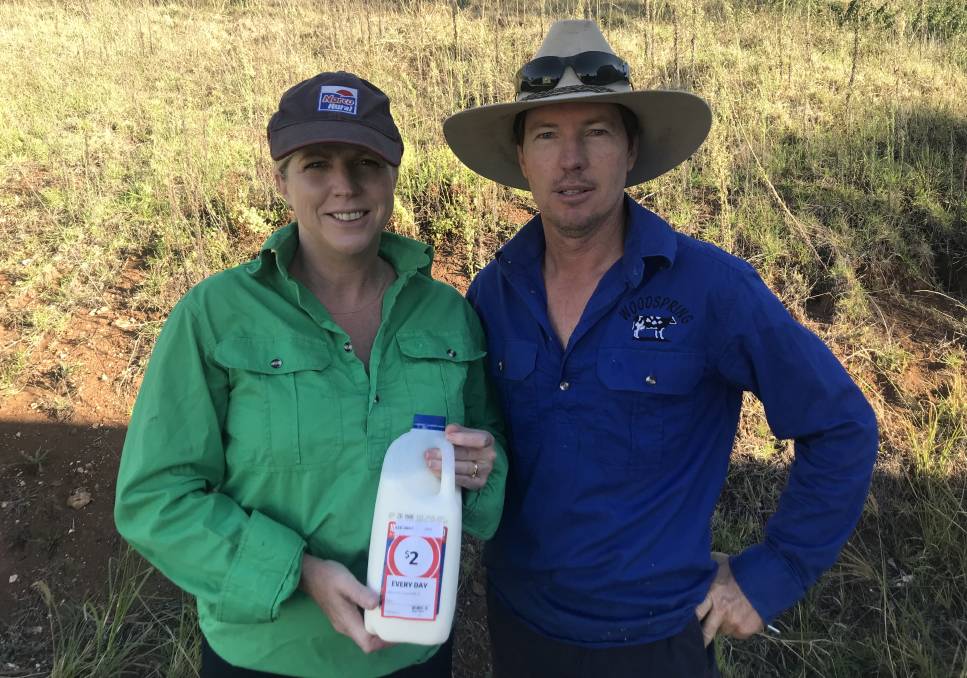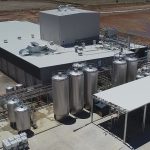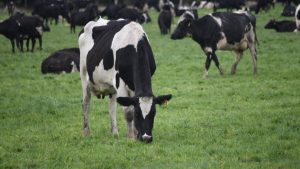
Mark and Donna Fitch, Woodspring, Kulpi, are third generation dairy farmers, providing two million litres of milk to Norco every year, but say complete disregard for the industry by Coles and tough seasonal conditions are taking a toll.
“It’s disheartening and completely un-Australian what is occurring in the fresh milk market,” Mrs Fitch said.
“Milk supply has diminished, costs have risen substantially on farm, and the farmer has no way of recouping his cost of production.”
Mrs Fitch has contacted Coles several times to explain what farmers are facing, only to be told that the company are helping through the Dairy Drought Relief Fund.
“I feel really disappointed to think that when farmers have so much invested…Coles think farmers will appreciate charity.
“That corporate response clearly indicates that Coles are out of touch with what’s really going on, and their main intention is to confuse the consumer with cooperate spin. It’s really just baffling as to why they’re so against supporting farmers.”
Coles chief operating oficer Greg Davis said the company was proud to support the dairy industry through their Dairy Drought Relief Fund and thanked customers for their overwhelming support.
Norco recently announced an increase of 6.5c/L for farmers, and although the increase has been well-received, Mrs Fitch said it was once again an indication of the desperate need for milk pricing to reflect on farm pressures.
“It has certainly made things feel a lot better for us, but Norco being a cooperative still have to be able to get the milk pricing increase back out of the market place and remain a viable company,” she said.
Mr Fitch said anyone could see the $1/L price of milk was completely artificial and manufactured by retailers.
“That price does not reflect in any way the normal standard market forces of supply and demand,” he said.
“You see that nowhere else at all, so for them to be able to hold that line and hide behind the ACCC findings makes a mockery of that finding.”
Worsening seasonal conditions, rising grain prices and $1/L milk has culminated in a mass exodus from the dairy industry, something Mr Fitch said would be hard to come back from.
“If we lose that investment in the Queensland dairy industry, we will be importing milk from interstate which will, in the long run, cost consumers more,” he said.
Mrs Fitch said they no longer shopped at Coles.
“We will not support a company that is opportunistic, even though we supply the milk that goes into their bottles.”

























